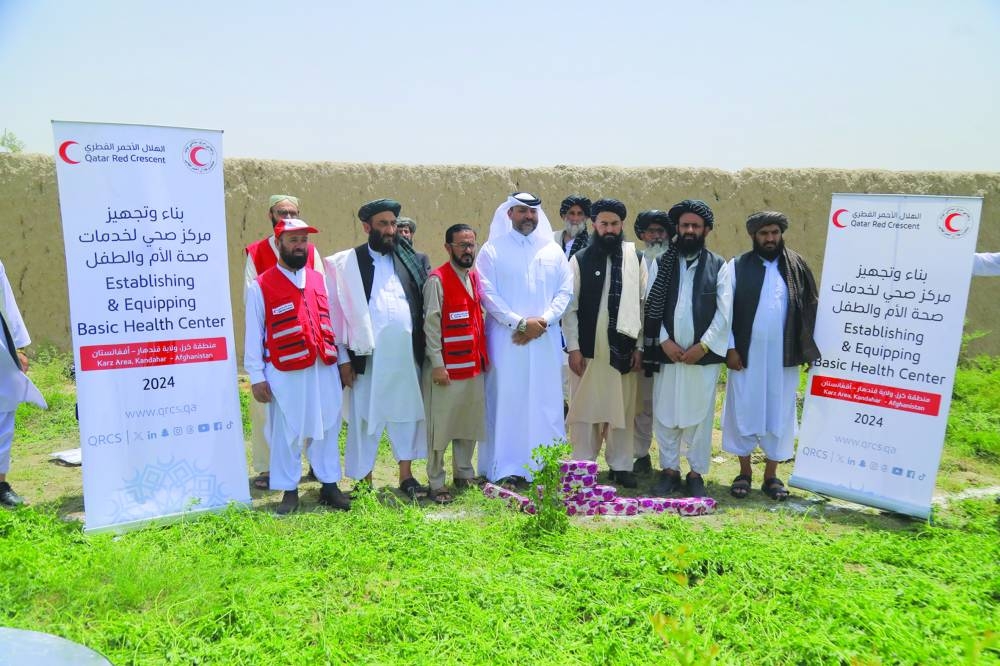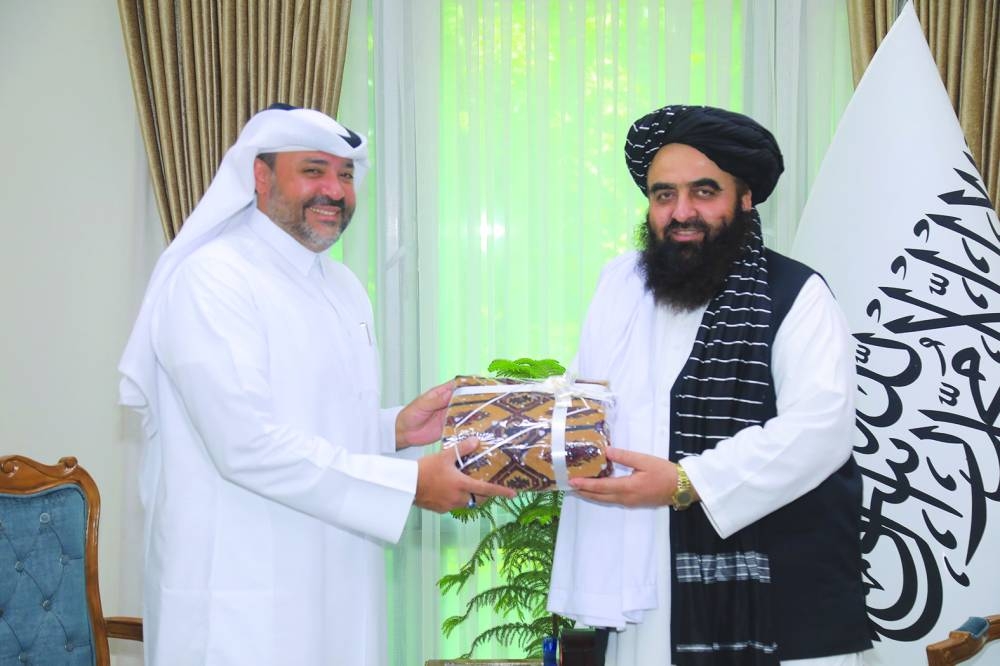A new Qatar Red Crescent Society (QRCS) project will see the construction of 10 health centres in Afghanistan, benefiting hundreds of thousands of mothers and children in underserved areas.
This was announced during the visit of Dr Mohamed Salah Ibrahim, director of Relief and International Development Division at QRCS, in Afghanistan to inspect the progress in the humanitarian projects being implemented by QRCS’ representation office there.
At a press conference co-held by Dr Ibrahim and Matiul Haq Khalis, president of the Afghan Red Crescent Society (ARCS), the officials said the new initiative aims to provide primary health care and enhance maternal and child health services for more than 250,000 beneficiaries annually.
Dr Ibrahim met several Afghan ministers, including Amir Khan Muttaqi, Minister of Foreign Affairs; Khalil Rahman Haqqani, Minister of Refugees; Mohamed Younus Akhundzada, Minister of Rural Rehabilitation and Development; and Maulvi Habibullah Agha, Minister of Education.
He also met Abdul-Wali Haqqani, Deputy Minister of Health Services; Katharina Ritz, head of the International Committee of the Red Cross’ (ICRC) delegation in Afghanistan; health director in Kandahar, and ARCS leaders and staff in Kabul and Kandahar.
Dr Ibrahim also visited hospitals and specialised centres of cardiac catheterisation for children in Kabul, QRCS’ office, the Indira Gandhi Hospital’s Cardiology Centre, QRCS’ water and sanitation projects across Zabul, Mirwais Hospital in Kandahar, ARCS Mental Health Hospital, the community health centre (CHC) in the 3rd District, Kandahar city, and some flood-affected areas in Baghlan.
During his visit, it was agreed to extend QRCS’ support for CHC, active since 2018, providing it with medications, medical and non-medical supplies and equipment, operational budget, and staff training until 2027. This aims to provide basic health services and maternal care services for an average of 46,000 people per year.
With funding from Qatar Fund for Development (QFFD), QRCS signed a co-operation agreement with ARCS to launch a project aimed at enhancing resilience among families most affected by conflicts and natural disasters in Afghanistan by improving food security and livelihoods.
The project will benefit 800 families in Farah, Faryab, and Helmand provinces.
Under the medical convoys programme, QRCS launched phase 4 of the Little Hearts project in Afghanistan.
In partnership with ARCS, a volunteer medical delegation from Sidra Medicine was deployed to the country to perform cardiac catheterisations for 169 children with congenital heart defects, at a total cost of $416,616.
There are preparations to launch phase 4 of the project to support education in remote areas of Afghanistan, to be implemented in Zabul and Farah.
In Kandahar, Dr Ibrahim laid the foundation stone for a health centre in Dand District, which will serve 18,720 people in the province and neighbouring regions. Apart from construction, equipment, and furnishing works, the project involves operation; staffing; and provision of medications, medical supplies, and operational budget for 18 months.
The visit concluded with a tour of Baghlan Province, to launch an emergency project to meet the needs of flood-affected families, by distributing food and nonfood aid to 1,000 families in Baghlani Jadid and Burka Districts.

Dr Mohamed Salah Ibrahim with Afghan officials at the launch of health centre construction project.

Meeting with Afghanistan's Minister of Foreign Affairs.
